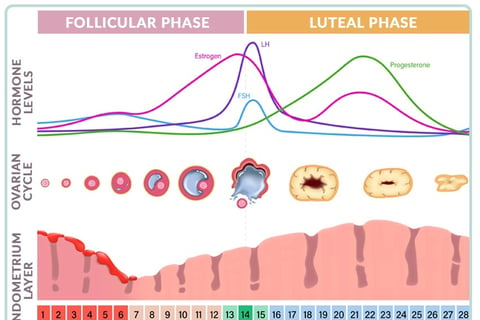
Pregnancy by Appointment

Understanding the First Two Weeks of Pregnancy
During the first two weeks of what we call the "pregnancy period," your body is getting ready for a possible pregnancy, but pregnancy hasn't actually started yet. This might sound a bit tricky, but let's break it down!
Week 1:
This week begins with the first day of your menstrual cycle, which is when you get your period. During this time, your body sheds the lining of the uterus because there is no pregnancy. But don't worry, your body is already preparing for a new cycle. This week is important for tracking your cycle, especially if you're trying to become pregnant in the future.
Week 2:
In this week, something exciting is happening inside the ovaries. They are getting ready to release an egg. This is called the follicular phase. The brain sends signals to the ovaries to start maturing several eggs. By the end of this week, one egg will be prepared to be released, which we call ovulation. Ovulation is a key part of the process if you're looking to have a baby.
Even though it's called the first two weeks of pregnancy, technically, there is no baby yet. It's just your body getting ready for a potential pregnancy.
Frequently Asked Questions
What is the menstrual cycle? The menstrual cycle is the monthly process that prepares your body for pregnancy. It starts on the first day of your period and ends when the next period begins.
How long does the follicular phase last? The follicular phase can vary in length from person to person. While it typically lasts around 14 days, it can be shorter or longer depending on an individual's cycle. This phase begins on the first day of your period and continues until ovulation occurs. The follicular phase's length largely determines the length of your menstrual cycle, as the time from ovulation to the start of your next period (the luteal phase) is generally more consistent at about 14 days.
What is ovulation? Ovulation is when an ovary releases an egg. This is the best time for the egg to meet the sperm for a possible pregnancy.
How can I know when I'm ovulating? Many women use ovulation kits to identify their most fertile days, or wear devices like the Aura Ring to track their body’s cycle.
Why haven’t I conceived yet if it’s the pregnancy period? The first two weeks are just preparation. Pregnancy can only occur after ovulation if an egg is fertilized.
Helpful Products
Oura Ring: Track your cycle with a smart wearable that provides insights into your body's readiness for ovulation.
Natural Cycles: Is digital contraceptive that uses daily basal body temperature readings to determine your fertility status for effective cycle tracking and family planning.
Ovulation Kit : Discover a reliable way to track your ovulation with this simple, at-home test.
Learning about your cycle can empower you to understand your body better, whether you're aiming to get pregnant or just want to know more about your health.


